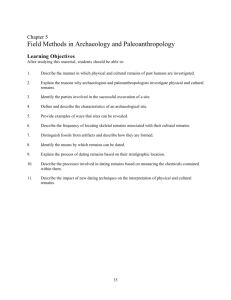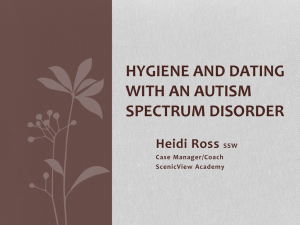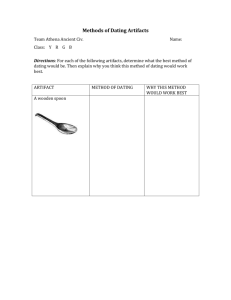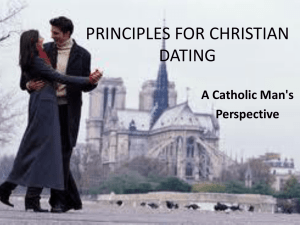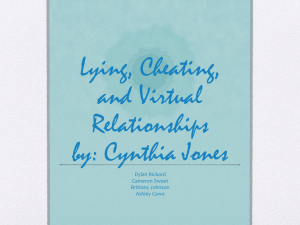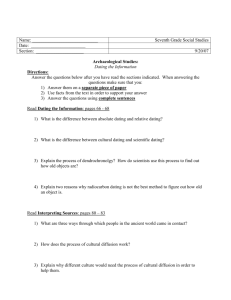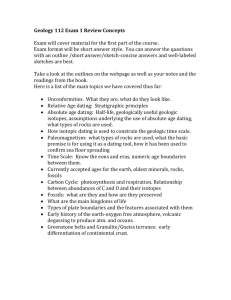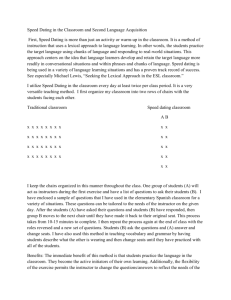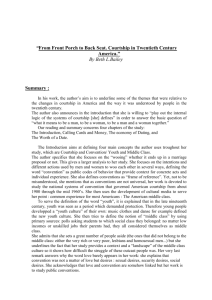Dating is for fun
advertisement
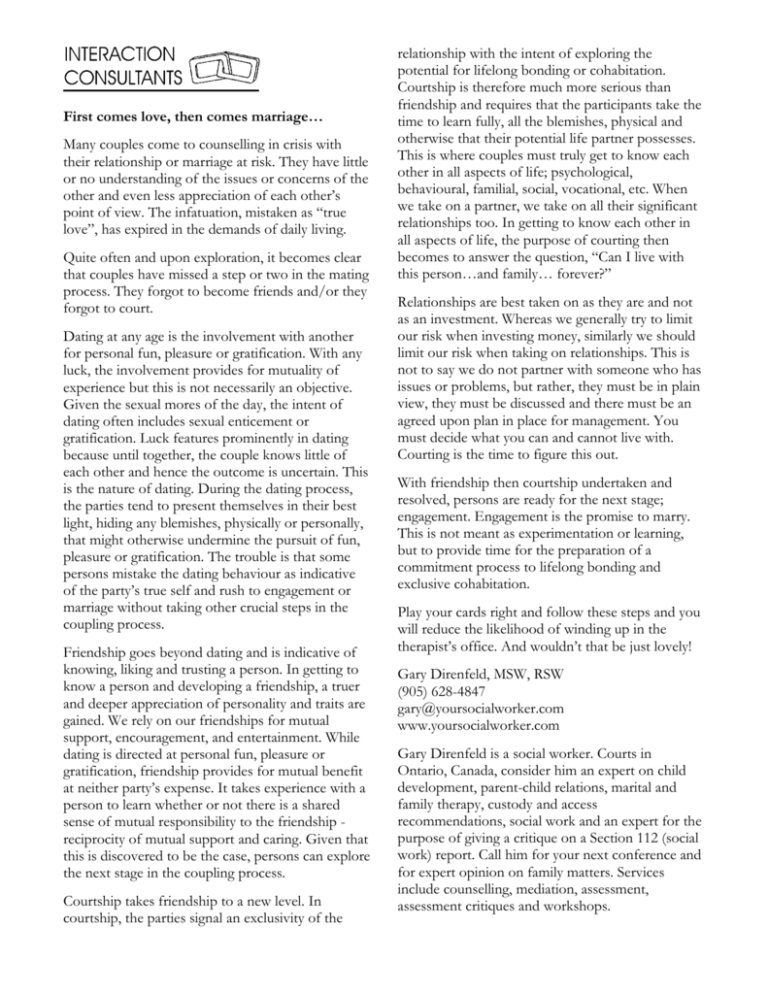
First comes love, then comes marriage… Many couples come to counselling in crisis with their relationship or marriage at risk. They have little or no understanding of the issues or concerns of the other and even less appreciation of each other’s point of view. The infatuation, mistaken as “true love”, has expired in the demands of daily living. Quite often and upon exploration, it becomes clear that couples have missed a step or two in the mating process. They forgot to become friends and/or they forgot to court. Dating at any age is the involvement with another for personal fun, pleasure or gratification. With any luck, the involvement provides for mutuality of experience but this is not necessarily an objective. Given the sexual mores of the day, the intent of dating often includes sexual enticement or gratification. Luck features prominently in dating because until together, the couple knows little of each other and hence the outcome is uncertain. This is the nature of dating. During the dating process, the parties tend to present themselves in their best light, hiding any blemishes, physically or personally, that might otherwise undermine the pursuit of fun, pleasure or gratification. The trouble is that some persons mistake the dating behaviour as indicative of the party’s true self and rush to engagement or marriage without taking other crucial steps in the coupling process. Friendship goes beyond dating and is indicative of knowing, liking and trusting a person. In getting to know a person and developing a friendship, a truer and deeper appreciation of personality and traits are gained. We rely on our friendships for mutual support, encouragement, and entertainment. While dating is directed at personal fun, pleasure or gratification, friendship provides for mutual benefit at neither party’s expense. It takes experience with a person to learn whether or not there is a shared sense of mutual responsibility to the friendship reciprocity of mutual support and caring. Given that this is discovered to be the case, persons can explore the next stage in the coupling process. Courtship takes friendship to a new level. In courtship, the parties signal an exclusivity of the relationship with the intent of exploring the potential for lifelong bonding or cohabitation. Courtship is therefore much more serious than friendship and requires that the participants take the time to learn fully, all the blemishes, physical and otherwise that their potential life partner possesses. This is where couples must truly get to know each other in all aspects of life; psychological, behavioural, familial, social, vocational, etc. When we take on a partner, we take on all their significant relationships too. In getting to know each other in all aspects of life, the purpose of courting then becomes to answer the question, “Can I live with this person…and family… forever?” Relationships are best taken on as they are and not as an investment. Whereas we generally try to limit our risk when investing money, similarly we should limit our risk when taking on relationships. This is not to say we do not partner with someone who has issues or problems, but rather, they must be in plain view, they must be discussed and there must be an agreed upon plan in place for management. You must decide what you can and cannot live with. Courting is the time to figure this out. With friendship then courtship undertaken and resolved, persons are ready for the next stage; engagement. Engagement is the promise to marry. This is not meant as experimentation or learning, but to provide time for the preparation of a commitment process to lifelong bonding and exclusive cohabitation. Play your cards right and follow these steps and you will reduce the likelihood of winding up in the therapist’s office. And wouldn’t that be just lovely! Gary Direnfeld, MSW, RSW (905) 628-4847 gary@yoursocialworker.com www.yoursocialworker.com Gary Direnfeld is a social worker. Courts in Ontario, Canada, consider him an expert on child development, parent-child relations, marital and family therapy, custody and access recommendations, social work and an expert for the purpose of giving a critique on a Section 112 (social work) report. Call him for your next conference and for expert opinion on family matters. Services include counselling, mediation, assessment, assessment critiques and workshops.
